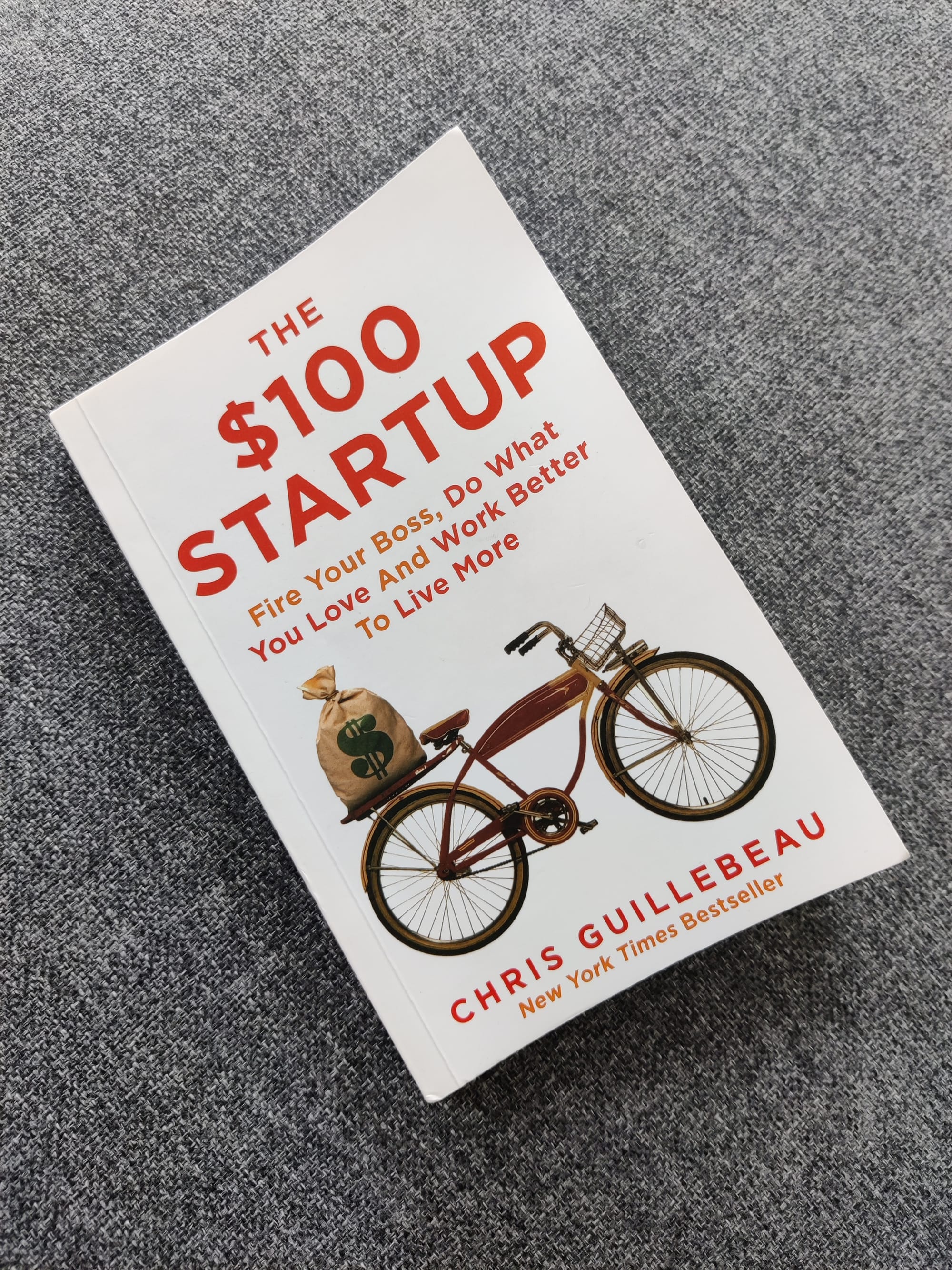The $100 Startup - Book Review
Does this book really show you how to start up with just $100? And succeed with it?

I have recently completed this book as titled and this is my thoughts on it.
Content & Relatability
With 25 case studies and more than 80 business mentions to read about, this book offers a range of diverse experiences and context, surely one would be relatable. That said, I only found one I resonated with in the final chapter - A character who discovered that working on a passion full time may not be the way to go, considering the creative work is now the source of income and and in turn drains the creativity due to the pressure to produce; also the fact that working alone means lack of collaborative work and more self-directed initiatives. (Spoiler: She return to her old job, but on a part-time basis, so she can financially sustain and grow her hustle at her own pace)
What I also loved was the sections of checklists, numbered lists, sample actions, reflective monologues, and graphics weaved in between the stories he shared. Across the whole book, I have dog-earred 15 pages for my reference later. He offers some practical things like a reality checklist, market testing tips, business plan template, product launch checklist, and business audit checklist. Many of these are also freely available on his website at 100startup.com (although domain security cert is not updated when this post is published).
For someone who has so many ideas and but so little self discipline and hunger for success, some of these information serve as a good reminder to snap out of unrealistic expectations within my current circumstances. Passion is just part of the equation.
(Passion + skill) -> (problem + marketplace) = opportunity
Writing Style
It was a very easy read. There was not many business lingo or fancy jargons, allowing for easy digestion of the stories. The author wrote the anecdotes like how one would share tales of other people's adventures, complete with sound effects at times. He also add his own perspective and dissects the motivation and context behind the people he talked to. That increases the reader's understanding of the context behind the cases and also the chances of them being relatable. However, there are a number of stories that were oversimplified as well. But I guess he did have a lot of stories to share and too little pages to write on.
Having been an entrepreneur himself, he does inject some good reflections for the ventures on behalf of the people he wrote about. Basically, it was a comfortable read as well, knowing ordinary people can do what many of the characters in the book have done. Makes you feel hopeful.
But did the book model its title? I'd say sort of. It does give you a glimpse of what can be if you'd like to try pursuing your own venture. However, not all ventures started with $100 la.
My takeaways
Good marketing and strong, relevant network is crucial for a business to thrive. However, most of it is also down to whether the product or service is solving a problem or providing added-value to people. A lot of the initiatives were about helping people (including themselves), and doing so genuinely.
Our unexpected entrepreneurs discovered that when they focused on providing value (helping people) above all else, their businesses were successful. - page 39
Unfortunately, we are still tied to the need for money. Hence, if your business is not sustaining your lifestyle, then somethings needs to change #mytruestory. Running a business also requires a certain level of discipline and commitment, a sense of urgency or a craving for an end-goal to fuel your drive to go at it day in and day out.
I wish the book had more on stories about failures and how people cope with it. Do they pivot? How do you know when to give up or when to persevere? How long do you keep trying at something? Having tried a couple of hustles myself, it is not easy to decide when to kill an idea or a venture off, especially if it is dear to you and perhaps even some customers of your venture. Perhaps an introspection of what matters to the readers and what are the current priorities they have would have been helpful at the end too.
Overall, it is still a book worth reading! I enjoyed it.
p/s: Thanks James Choong for being a great advocate of the book and gifting me one. If only Chris Guillebeau knows about his big fan!
